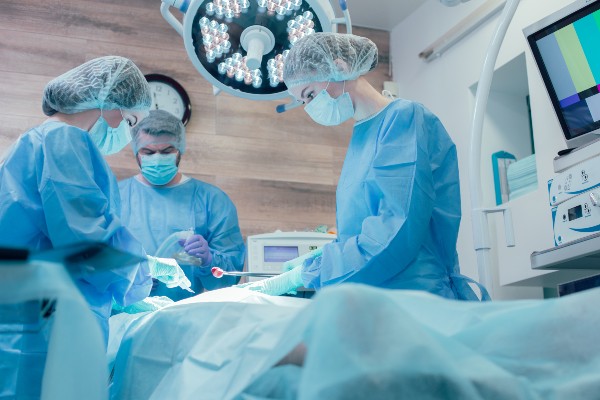After the power suddenly goes out, doctors were forced to complete surgery on three-year-old using improvised lighting and ventilation.
By Ben Rappaport, United with Israel
A humanitarian delegation from Israel’s Rambam Health Care Campus was last week in Addis Ababa performing surgeries on patients, when they encountered an unexpected problem.
During one such life-saving surgery on a three-year old, there was a sudden blackout as a result of a general power failure, and the backup generator wouldn’t start.
Without hesitation, the team of Israeli and Ethiopian doctors sprang into action, holding up flashlights on their cell phones to illuminate the surgical site and manually pumping air into the small patient’s nose in lieu of using the electric ventilator, which had also stopped working.
“Power outages are a part of life in these countries,” Dr. Yotam Shkedy, director of Rambam’s Otorhinolaryngology-Head and Neck Surgery Unit and head of the medical delegation, explained. “But usually there is a backup generator that automatically turns on. That did not happen in this case.”
“We had to adapt quickly because our young patient was lying on the operating table and we were in the middle of the procedure.”
Within seconds, the surgery proceeded under the light of Shkedy’s surgical headlight and the cell phone flashlights, as the Ethiopian anesthesia team, assisted by Dr. Vasile Recea, deputy director or Rambam’s anesthesia department, administered manual ventilation.
The surgery continued under these improvised conditions for over fifteen minutes before the power came back on.
“Lots of thoughts cross your mind when working in third-world countries, but working in an operating room without electricity never crossed my mind,” Shkedy said. “Happily, our patient’s life was never in danger, despite the power outage.”
The Israeli doctors were in Ethiopia as part of a collaboration between Rambam and St. Peters Hospital in Addis Ababa which began about a year ago, whereby Rambam occasionally sends delegations to St. Peters to assist in specialized treatments.
The latest Israeli delegation treated dozens of local patients and performed over ten surgeries while in Addis Ababa.
“We love our profession, but getting out of the daily routine into a different reality, one that often requires thinking outside the box or performing surgery under the light of a surgical headlight, gives us proportion and a lot of satisfaction, especially when another surgery is successfully completed and we have given assistance to those who needed it,” Shkedy concluded.
